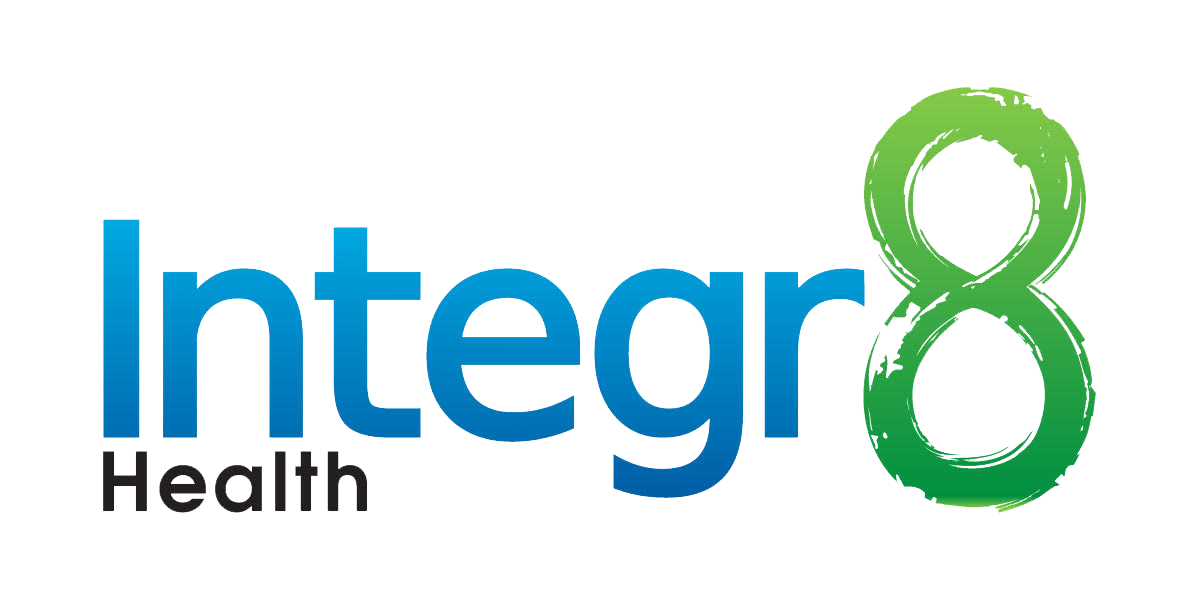Why I Love Bitcoin, Dr. Dustin Sulak

I am dedicated to helping my patients achieve their health goals.
I know the health of my patients is reciprocally interrelated with the health of their families, society, and economy.
The capacity for my patients to experience financial sovereignty directly impacts their ability to access high-quality healthcare, food, and other essential ingredients in health and happiness.
What is the basic purpose of money?
-
- Store the value of the work you perform
- Transfer value (trade) for goods and services that you do not provide for yourself

Problem with the System #1:
A Bucket with a Hole in the Bottom
The current financial system relies on fiat currency: government-issued currency that is not backed by a physical commodity, such as gold or silver, but rather by faith in the government that issued it.
Because the fiat system continually creates more circulating currency, storing the value of your work in fiat currency is like storing it in a bucket with a hole in the bottom.
Why? By “printing” more money, the value of each dollar decreases. Did you know the U.S. has created ~25% of the circulating supply of dollars since January 2020? This rapid increase is unprecedented and essentially decreases the value of any U.S. dollars any of us have saved.
Complex monetary policies can slow inflation, but these will not likely work forever, and this is becoming more evident. The consumer prices index, a measure of inflation, rose at an annual rate of 5% in May 2021, the highest since August 2008.
Governments and central banks have shown a persistent tendency to inflate their money supply to solve short-term political problems, leaving the owners of fiat currency with the likelihood that their savings will diminish in value over time.
If the stored value of your work is leaking out of your bucket, where does it go? Largely into the hands of big pharma, big agriculture, big food, corporate banks and the other oligarchical industries that have direct access to the financial spigot.
Problem with the System #2:
Backwards Incentives
The luxury of having access to the financial spigot creates a system where these massive industries have little incentive to provide the best quality products and services to their customers. Here’s one example:
In 2016, the United States spent $10,348 per capita on health-care costs, 17.9% of its gross domestic product, a total of $3.3 trillion. Despite spending more on health care than any other country, the United States consistently fails to achieve better health outcomes, ranking last or near last in every category when compared to other developed nations.
Why do we spend so much on ineffective healthcare? The incentive structure is backwards. The medical industry makes more profits by managing disease than by curing it. New, expensive treatments are favored over older, safer and more reliable treatments. Health promotion and disease prevention take a backseat to aggressive and expensive interventions after disease is well-established. The insurance system controls how clinicians work and which treatments they can offer, stifling innovation towards prevention and cure. If the healthcare system fails miserably in helping its customers achieve good health, it does not go out of business, it thrives.
This is why my colleagues and I at Integr8 Health work for you, not for insurance companies and giant healthcare organizations. We accept direct payment in exchange for the services we provide, and we hope our patients, who value our services, feel the exchange is fair and equitable. We have the freedom to choose how we practice, which treatments we provide, how long our visits last, etc. We make these choices based on what we think will provide the best outcomes for our patients. If we fail to improve the health of our patients, we go out of business. This incentive structure works for us and for our patients.
Problem with the System #3:
Censorship
What if the government, who we trust to control the fiat currency, doesn’t agree with you? What if you were denied access to banking, or if your funds were suddenly frozen, based on your choice of occupation or your opinions on controversial topics?
While this may seem unlikely to some, those of us in the legal cannabis industry are all too familiar with financial censorship. We struggle to maintain relationships with banks and payment processors, are denied loans and other services, and face major discrimination in tax laws.
In today’s society, highly polarized on topics related to politics, healthcare, morality, and many others, we are already seeing massive amounts of censorship occurring in traditional media and social media. Is it hard to imagine that one’s assets might be frozen or financial services might be denied if they choose to speak out against something strongly embraced by the government or financial system? Might other industries that provide effective and inexpensive solutions to major problems, like cannabis, face similar discrimination?
Financial censorship is a major threat to the innovation and collaboration needed to improve healthcare, protect and heal the environment, promote sustainable and sovereign food systems, and generate more equality among people.

The Solution
If we were to start from scratch and create a new currency that was ideal in serving the best interests of humanity (not just the 1%), what qualities would it include?
- Durable: the good must not be perishable or easily destroyed. Thus, salt is not an ideal store of value because it might rain.
- Portable: the good must be easy to transport and store, making it possible to secure it against loss or theft and allowing it to facilitate long-distance trade. A cow is thus less ideal than a gold bracelet.
- Fungible: one specimen of the good should be interchangeable with another of equal quantity. Thus, gold is better than diamonds, which are irregular in shape and quality.
- Verifiable: the good must be easy to quickly identify and verify as authentic. Easy verification increases the confidence of its recipient in trade and increases the likelihood a trade will be consummated.
- Divisible: the good must be easy to subdivide to allow for small and large transactions.
- Scarce: the good must not be abundant or easy to either obtain or produce in quantity. Scarcity is perhaps the most important attribute of a store of value as it taps into the innate human desire to collect that which is rare. It is the source of the original value of the store of value.
- Established history: the longer the good is perceived to have been valuable by society, the greater its appeal as a store of value.
- Censorship-resistant: a new attribute, which has become increasingly important in our modern, digital society with pervasive surveillance, is censorship-resistance. That is, how difficult is it for an external party such as a corporation or state to prevent the owner of the good from keeping and using it. Goods that are censorship-resistant are ideal to those living under regimes that are trying to enforce capital controls or to outlaw various forms of peaceful trade.
Bitcoin is Freedom Money
Bitcoin is not controlled by any government, organization, or individual – it is decentralized. It exists as an open-source computer code operating simultaneously on tens of thousands of computers around the world. It is essentially controlled only by its community of operators and users.
Thus, bitcoin is highly resistant to censorship, a quality that has increased its popularity among those who value individuality, innovation, and freedom. Bitcoin can be obtained and spent without any link to one’s identity or personal information.
But what about the other criteria of a great currency? Bitcoin is both durable and portable – by memorizing a passphrase, a person can store millions of dollars worth of bitcoin in her mind and secretly carry it across borders. It can be sent nearly instantly around the world without any need for banks. Bitcoins are fungible, all treated the same on the network, and verifiable with mathematical certainty. Using cryptographic signatures, the owner of a bitcoin can publicly prove she owns the bitcoins she says she does. Bitcoins can be divided down to a hundred millionth of a bitcoin (called a satoshi) and transmitted in tiny or large amounts. And as for established history, the value of bitcoin is now affirmed by dozens of publicly-traded companies that have invested in bitcoin. Even more impressively, El Salvador has adopted bitcoin as their national currency!
Most importantly, bitcoins are scarce. By design, only 21 million bitcoins will ever be created, or “mined” (the system rewards operators of powerful computer systems for solving complex computations that verify bitcoin transactions), and most of these already have been mined. After all 21 million bitcoins are created (estimated to occur around year 2040), the “miners” will be paid with transaction fees only. No additional bitcoin can ever be created.
Bitcoin Can Foster a Better World
I believe that as more people adopt bitcoin, the power of the fiat monetary system will diminish, allowing the incentive structure of large organizations (including governments) to shift towards actually serving the interests of their customers and constituents in the most efficient manner.
What if the massive companies that comprise big pharma, big agriculture, and big food are no longer be able to maintain their power by colluding with central banks that simply create more money? Recall that 25% of the US dollar supply was created in 18 months. Without this endless supply of money (secretly obtained by diluting the value of your savings), these overgrown and inefficient industries will not be able to sustain their current business models. They will instead have to begin actually providing value to society that’s proportionate to their costs, or go out of business.
Imagine if the giant leach that’s secretly sucking the financial life-blood of 99% of the global population (and concentrating it into the accounts of <1%) could be removed! I can envision a world of much less poverty, much greater equality, and much better health at the level of the environment, community, and individual.
Important:
Cryptocurrencies are not Bitcoin!
In the wake of Bitcoin’s success, hundreds of alternative cryptocurrencies, also known as “shitcoins,” have emerged. These are essentially financial instruments used for trading (online gambling). While many are similar in structure and function to Bitcoin, they do not share the same freedom from control and censorship and are not candidates for replacing the outdated and ineffective fiat system.
How to Get Started Using Bitcoin as a Store of Value
If your savings are entirely held within the fiat monetary system, consider diversifying into bitcoin.
- If you’ve saved cash, you can use a bitcoin ATM to anonymously exchange your cash for bitcoin, which can be stored in a private wallet that you fully control. This is one of the most private methods for obtaining bitcoin, but that comes at a cost (10-14% transaction fees are typical).
- If you have savings in the banking system, you can use an exchange to purchase bitcoin directly from your bank account. You can then take custody of your bitcoin by transferring it from the exchange to your private wallet. While this is simple onramp, it is not fully private since the bank and the exchange will have a record of how much fiat currency you traded for bitcoin. While you sacrifice some privacy, this method costs substantially less (as low as 1% transaction fees).
- Some bitcoin exchanges allow you to automatically purchase a small quantity of bitcoin every day or every week. This is ideal and much more emotionally comfortable – the price of bitcoin in U.S. dollars is highly volatile, so this dollar cost averaging approach allows you to purchase bitcoin at an average cost over time instead of trying to predict when is a good time to make a large purchase.
- If you’re looking for a bitcoin exchange congruent with the ethos outlined in the document, consider www.swanbitcoin.com/drsulak. Using this link will reward you with $10 credit and I’ll earn a small portion of your transaction fees as a referral bonus.
Suggested Wallet Software
There are several options for bitcoin wallets, which are essentially software programs that generate a public address that others can use to send you bitcoin, and allow you to send bitcoin to others. Large amounts of bitcoins should be stored securely in “cold storage” wallets that are not connected to the internet and not vulnerable to attacks from hackers. “Hot wallets” typically exist on devices with internet connection, like mobile phones and computers.
If you’re new to bitcoin and looking to get started, I suggest the Muun wallet, available free on www.muun.com. The setup takes 5-10 minutes and walks you through the advanced security features of the wallet including an emergency kit for recovering your funds if you lose your device or your password.
